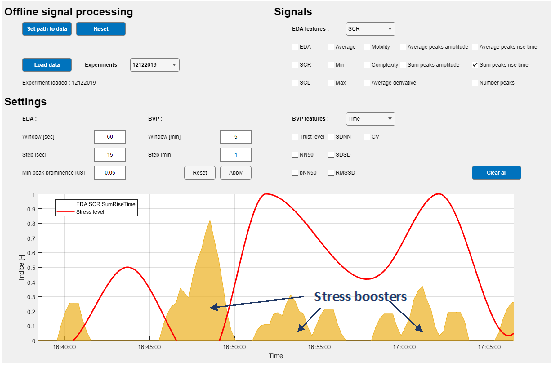Analyze-Me
Software tools for processing physiological signals from patients with non-verbal autism
Phase 1
Type of project: Exploratory research
Disability concerned: Autism and Pervasive Developmental Disorders, Mental disability, Polydisability
Topics: Autonomy, Communication, Health, Interpersonal relationships
Status: Completed
In order to improve the care of people with a non-verbal form of autism spectrum disorder (ASD), we evaluated the possibility of developing a simple, non-invasive system for predicting crises in people with ASD by analysing physiological signals collected via the use of the Empatica E4 bracelet.
Patients with a non-verbal form of autism spectrum disorder (ASD) are unable to communicate with others and are at risk of developing challenging behaviours (self-aggression, hetero-aggression, shouting, destruction, motor instability). Some behaviours, particularly self-mutilation, can be dangerous not only for the patient but also for their carers. When crises do occur, it is essential to anticipate them so that preventive and appropriate action can be taken on the environmental conditions, thereby mitigating their consequences. In this context, knowing that verbal communication is very limited, if not impossible in some cases, it is difficult to understand the reasons for such a crisis. In particular, it is difficult to determine whether they are an alternative way of expressing the person’s needs or whether they reflect a state of consciousness or a somatic experience, stress or pain.
In this exploratory project, we studied the potential of analysing physiological signals, such as heart rate variability (HRV) and electrodermal activity (EDA), which are widely used in various areas of medical research, for example the assessment of pain and stress. Such an assessment in a population of people with multiple disabilities whose central and peripheral nervous systems are impaired represents an even greater challenge.
In order to improve the management of people with ASD, we evaluated the possibility of developing a simple, non-invasive system for predicting seizures in people with ASD by analysing the physiological signals collected using the Empatica E4 bracelet.
Over the past six months, we have developed a preliminary version of the Matlab-based tool with graphical user interface (GUI) for analysing physiological signals such as EDA, HR, HRV, acceleration and temperature that can be collected using the Empatica E4 bracelet.
The current version of the graphical interface can already extract more than 50 signal characteristics correlated with stress and pain, while only allowing offline analysis.
The further development of an algorithm predicting seizures in ASD patients requires the collection of data from a large number of healthy volunteers and ASD patients. As part of this project, we have prepared all the documents required for approval of such a study by the ethics committee, and the documents are currently being assessed.
We have already submitted our next proposal for the development phase of the Innovation Booster prototype. Our next steps would be to collect the necessary data on healthy volunteers and ASD patients and to first develop the stress assessment algorithm for healthy volunteers, then to test this algorithm on ASD patients by evaluating its potential to detect stressful or painful events and to study the correlation of these events with risks of the appearance of problematic behaviours.

